
Batteries & Supercaps
Scope & Guideline
Pioneering Sustainable Innovations in Energy
Introduction
Aims and Scopes
- Battery Materials Development:
The journal emphasizes the exploration of new materials for batteries, including cathodes, anodes, and electrolytes, focusing on enhancing performance, stability, and sustainability. - Electrochemical Mechanisms and Interface Studies:
Research on the electrochemical processes within batteries and supercapacitors, including studies on solid-electrolyte interphase (SEI) formation, charge transfer mechanisms, and degradation pathways. - Innovative Fabrication Techniques:
The journal highlights advancements in fabrication methodologies for energy storage devices, including 3D printing, layer-by-layer assembly, and novel coating techniques. - Sustainable Energy Solutions:
A significant focus on developing sustainable and environmentally friendly energy storage solutions, including organic materials, recycling strategies, and low-cost manufacturing approaches. - Modeling and Simulation:
The use of computational methods and modeling to predict performance, optimize designs, and understand complex electrochemical behaviors in battery systems.
Trending and Emerging
- Solid-State Batteries:
Solid-state battery technology is rapidly emerging as a focal area, with significant research dedicated to developing solid electrolytes and understanding their interfaces for enhanced safety and performance. - Sodium-Ion and Alternative Chemistries:
Research on sodium-ion batteries and other alternative chemistries is gaining momentum, driven by the need for sustainable and abundant materials in energy storage solutions. - Artificial Intelligence and Machine Learning Applications:
The integration of AI and machine learning into battery research is on the rise, being applied for predictive modeling, optimization of materials, and improving battery management systems. - Electrochemical Energy Storage Systems for Renewable Integration:
Research increasingly focuses on energy storage solutions that support renewable energy systems, highlighting the need for efficient, scalable storage technologies that can balance supply and demand. - Nanostructured and Composite Materials:
The trend towards using nanostructured and composite materials for electrodes is prominent, as these materials can significantly enhance electrochemical performance and energy density.
Declining or Waning
- Conventional Lithium-Ion Technologies:
As interest in alternative battery chemistries (e.g., sodium-ion, magnesium-ion) increases, conventional lithium-ion technologies are receiving comparatively less attention, particularly in terms of new material development. - Single-Ion Conductors:
Research on single-ion conductors has waned as the focus shifts towards more complex electrolyte systems that enhance ionic conductivity and overall performance for practical applications. - Traditional Carbon-Based Anodes:
With the emergence of silicon and other high-capacity materials for anodes, traditional carbon-based anodes have seen a decrease in research output, as the field explores more innovative solutions. - Basic Theoretical Studies:
There has been a noticeable reduction in purely theoretical studies without experimental validation, as the journal increasingly prioritizes research that combines theory with practical application.
Similar Journals

Batteries-Basel
Unlocking Potential in Energy EngineeringBatteries-Basel, published by MDPI, is a premier open-access journal since 2015 that aims to serve the growing community focused on the technological advancements and innovations in battery science and related fields. Operating from its base in Switzerland, this journal publishes high-quality research covering the fields of Electrical and Electronic Engineering, Electrochemistry, and Energy Engineering and Power Technology. With a commendable Q2 ranking in multiple categories for 2023, it consistently strives to present cutting-edge studies, reviews, and practical applications that drive progress in energy storage technologies. Researchers and professionals will find invaluable insights within its pages, contributing to both theoretical understanding and practical deployment of battery technologies. Open access provides broad dissemination of knowledge, ensuring that discoveries reach a global audience, and fostering collaborative efforts to address the challenges posed by modern energy demands.
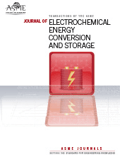
Journal of Electrochemical Energy Conversion and Storage
Elevating Knowledge in Electrochemical InnovationsThe Journal of Electrochemical Energy Conversion and Storage, published by ASME, is a premier platform for cutting-edge research in the fields of electrochemistry, energy engineering, and materials science. With an ISSN of 2381-6872 and an E-ISSN of 2381-6910, this journal aims to disseminate high-quality articles that contribute to the understanding and application of energy conversion and storage technologies. Notably recognized in the 2023 Category Quartiles as Q2 in multiple categories including Electronic, Optical and Magnetic Materials, Energy Engineering and Power Technology, and Mechanical Engineering, it reflects a strong academic impact within its field. The journal also boasts competitive Scopus rankings, highlighting its relevance and influence across disciplines. Operating under an open access model, the journal ensures that research findings are widely accessible, fostering collaboration and innovation among researchers, professionals, and students globally. As we move toward a more sustainable future, the Journal of Electrochemical Energy Conversion and Storage plays a critical role in advancing technologies that promise to reshape how we harness and utilize energy.
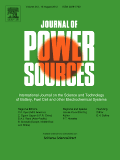
JOURNAL OF POWER SOURCES
Harnessing Knowledge for Tomorrow's Power ChallengesThe Journal of Power Sources is a premier multidisciplinary journal published by Elsevier, focusing on the advancement of technology and science in the field of power sources. Established in 1976, it showcases high-quality research spanning traditional and emerging technologies related to energy storage, conversion, and utilization. With a strong commitment to impact, this journal ranks in the Q1 quartile for several categories, including Electrical and Electronic Engineering, Energy Engineering and Power Technology, and Renewable Energy, Sustainability, and the Environment, reflecting its broad influence and esteemed contributions to the field. The journal is highly regarded within Scopus, holding impressive rankings such as Rank #33 in Electrical and Electronic Engineering and Rank #13 in Energy Engineering, among others, positioning it well within the scientific community. While the journal is not open access, it remains pivotal for professionals, researchers, and students seeking to stay at the forefront of developments in power sources. The continuity of its publication until 2024 further ensures that it will remain a key resource for innovative research and technological advancements in energy solutions.

Journal of Energy Storage
Innovating the future of energy storage technology.Welcome to the Journal of Energy Storage, a premier publication dedicated to advancing the science and technology of energy storage systems. Published by ELSEVIER in the Netherlands, this esteemed journal boasts a significant impact in the field, categorized as Q1 in Electrical and Electronic Engineering, Energy Engineering and Power Technology, and Renewable Energy, Sustainability and the Environment for 2023. With a commitment to disseminating high-quality research, the journal provides a platform for the latest innovations and findings, covering a broad spectrum of topics from battery technologies to thermal energy storage. As a must-read for researchers, professionals, and students alike, the Journal of Energy Storage facilitates vital discussions that shape the future of sustainable energy practices. While presently offering select access options, the journal continues to expand its reach and influence within the academic community, encouraging submissions that drive forward our understanding of energy solutions. Discover the forefront of energy storage research and contribute to a world increasingly reliant on efficient energy management.

EcoMat
Advancing sustainability through innovative materials research.EcoMat, published by WILEY, stands as a cornerstone in the interdisciplinary fields of Chemistry and Materials Science. Since its inception in 2019, this Open Access journal has quickly garnered a prestigious reputation, achieving Q1 category rankings across various fields, including miscellaneous chemistry and physical and theoretical chemistry. With Scopus rankings reflecting its impact—ranked #7 in both Physical and Theoretical Chemistry and Chemistry (miscellaneous)—EcoMat publishes cutting-edge research that addresses critical challenges in material sustainability and innovation. Researchers, professionals, and students alike benefit from the rich content accessible from its Hoboken, NJ location, exemplifying a commitment to enhancing scholarly communication and collaboration whilst advancing the frontiers of material sciences and chemistry.
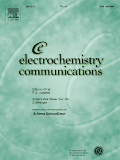
ELECTROCHEMISTRY COMMUNICATIONS
Fostering Innovation through Accessible Electrochemical ResearchELECTROCHEMISTRY COMMUNICATIONS, published by ELSEVIER SCIENCE INC, is a leading journal in the field of electrochemistry, holding a prestigious position in the Q1 quartile since 2023. With an impact factor reflecting its esteemed reputation, the journal ranks #15 out of 60 in the Scopus Chemistry category for Electrochemistry, placing it in the 75th percentile. Since adopting an Open Access model in 2019, it has garnered widespread visibility and accessibility, enabling researchers and professionals to share groundbreaking findings and foster innovation. Covering a wide range of topics from fundamental electrochemical research to practical applications, ELECTROCHEMISTRY COMMUNICATIONS serves as a critical platform for disseminating knowledge and advancing the field. The journal's commitment to quality and relevance positions it as a vital resource for academics and practitioners striving to stay at the forefront of electrochemical science.
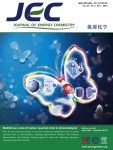
Journal of Energy Chemistry
Leading the Charge in Electrochemical InnovationThe Journal of Energy Chemistry, published by Elsevier, is a premier international journal that has established itself at the forefront of research in the fields of electrochemistry and energy technology. With an impressive impact factor, this journal is classified in the Q1 quartile across multiple categories including Energy Engineering and Power Technology, Fuel Technology, and Electrochemistry, underscoring its significant contribution to advancing knowledge and innovation in energy systems. Based in the Netherlands, the journal offers open access to its cutting-edge research, allowing for broad dissemination and engagement among researchers, professionals, and students alike. The scope of the journal spans crucial topics from chemical energy storage to sustainable energy solutions, making it an essential resource for those looking to understand and contribute to the evolving landscape of energy chemistry.

Electrochemical Energy Reviews
Empowering Scholars to Shape Tomorrow's Energy SolutionsElectrochemical Energy Reviews, published by SpringerNature, serves as an essential platform for the dissemination of cutting-edge research in the fields of electrochemistry, material science, and energy engineering. With an impressive impact factor and ranked in the Q1 category across multiple disciplines including Chemical Engineering and Energy Technology, this journal highlights its commitment to advancing knowledge and innovation within the energy sector. Operating since 2018, the journal not only provides a valuable resource for researchers and professionals but also invites contributions from students and emerging scholars interested in the pivotal role of electrochemical processes in sustainable energy solutions. Published in Germany and widely accessible to the global research community, Electrochemical Energy Reviews is an indispensable reference for those keen on exploring the future of energy technologies.
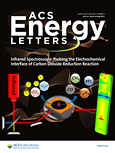
ACS Energy Letters
Empowering Research for a Greener TomorrowACS Energy Letters, published by the American Chemical Society, is a prestigious peer-reviewed journal designed to disseminate innovative and impactful research in the multifaceted field of energy science. Since its inception in 2016, the journal has quickly ascended to a remarkable status, achieving Q1 rankings in critical categories including Chemistry (miscellaneous), Energy Engineering and Power Technology, Fuel Technology, Materials Chemistry, and Renewable Energy, Sustainability and the Environment as of 2023. With an emphasis on rigorous research methodologies and interdisciplinary collaboration, ACS Energy Letters serves as a vital platform for scholars, professionals, and students to explore cutting-edge research that addresses contemporary energy challenges. While maintaining a commitment to advancing knowledge without open access, it offers profound insights into sustainable practices and innovative solutions that are crucial for the future of energy systems globally. The journal's esteemed standing in the chemical and energy sectors underscores its significance, making it an essential resource for anyone invested in the advancement of energy technologies and sustainable practices.

International Journal of Renewable Energy Research
Advancing sustainable solutions for a brighter tomorrow.International Journal of Renewable Energy Research (IJRER) is a distinguished peer-reviewed journal dedicated to advancing the field of renewable energy through innovative research and comprehensive analyses. Published by the esteemed INT JOURNAL RENEWABLE ENERGY RESEARCH, this journal has established itself as a vital resource for academics and industry professionals alike since its inception in 2011. With a focus on a wide array of topics in Energy Engineering and Power Technology and Renewable Energy, Sustainability and the Environment, IJRER has been recognized for its contributions, attaining a Q3 categorization in Energy Engineering and Power Technology and a Q4 rank in Renewable Energy for 2023. The journal is indexed in Scopus, demonstrating its global reach and impact, with notable rankings in both relevant categories. Researchers can access a wealth of valuable insights and findings that are crucial for fostering sustainable practices and technologies. Thus, IJRER plays a pivotal role in driving the future of renewable energy research and innovation.